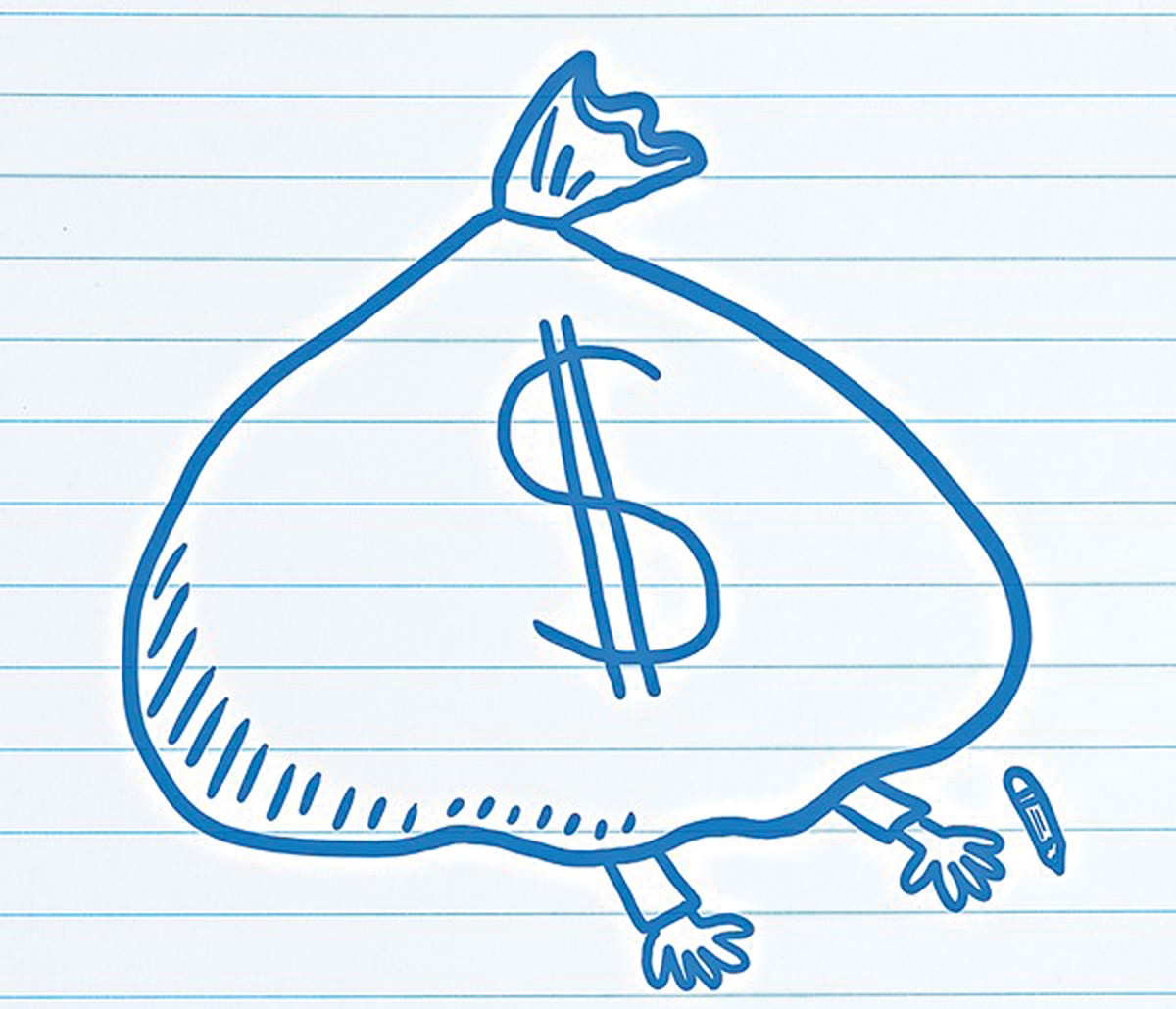It's supposed to be the American dream: If you wanted to get a well-paying job, you'd have to go to college, and to go to college, you'd probably have to take out a student loan. And so it was that millions of fresh-out-of-high-school, college-bound students signed on the dotted line with hopes for a brighter future.
Or not. In the past decade, the cost of education has skyrocketed, increasing at a rate double that of inflation. This past year, the average tuition was $34,699 at private colleges, $9,528 for state residents at public colleges, and $21,632 for out-of-state students at state schools. And as the cost of college has increased, so has the number of Americans who have saddled themselves with student loans to try to pay for it.
This year, a record 44 million Americans are burdened with college debt, owing a staggering collective $1.48 trillion — about $620 billion more than credit card debt. The average class of 2017 graduate has $39,400 in debt, making an average monthly student loan payment of $351. (Michigan residents, by the way, have one of the nation's highest student loan debt per capita at $5,330.) Paying off these debts has proven to be difficult for many: In 2017, a record 8.5 million Americans defaulted on their student loans.
It's pressure felt particularly hard by millennials. Studies have shown that college debt is making the generation less entrepreneurial, with the percentage of people under 30 who own their own businesses falling 65 percent since the 1980s. It's no wonder homeownership and childbearing rates have plummeted among millennials as well. The crushing debt is affecting other aspects of our lives, too, with 1 in 8 divorcees blaming student loan debt for the end of their marriage, according to a report from Student Loan Hero.
The whole situation has led to an entire recent genre of Kafka-esque essays, like "I've paid $18,000 to a $24,000 student loan, & I still owe $24,000" in Bustle and The Wall Street Journal's saga of Mike Meru, a Utah dentist whose college debt is more than $1 million and grows by $150 a day.
So how can you take out student loans and not get totally fucked? There are a few key things to look out for.
Each year, fill out a Free Application for Federal Student Aid (FAFSA) form. This is the first step in qualifying for federal loans, so make sure you fill it out ahead of the deadline. There are also financial aid options that don't involve taking on loans — many colleges and other organizations offer scholarships, and many colleges have grant-based financial aid for first-generation students. Aid is also available for people who serve in the military or in AmeriCorps. More information is available at studentaid.ed.gov.
It should go without saying, but make sure you read the fine print in your loans. Some loans have variable interest rates, which means they can fluctuate with the market, and student loan companies have been known to quietly change the rate without telling borrowers. Make sure you pay attention to interest rates: The amount you pay is applied to paying off the interest before it touches the principal balance. If you miss a payment, you get fined, and that fine and the unpaid interest gets compounded with your next payment. Things can get out of control if you don't stay on top of those payments.
Also note that interest accrues while you're in school — so if you can start marking payments, do it. After graduation, most student loan borrowers are given a six-month grace period before payments are expected, but again, look out — your loans are still accruing interest during this time. The grace period just means you won't be fined for not making your payments. Again, if you can start making payments now, do it.
Another way to extend the grace period is to continue your education by going to graduate school — this will delay your payments until you graduate again. Do so at your own peril. The government allows for even easier borrowing for grad school, and your total costs will only balloon even higher during this time. If you can swing it, it's better to find an employer who might help pay for graduate school.
And if you take out student loans, know that you're making a deal for life. Collectors can garnish your wages, tax returns, Social Security and more. It's a bond that outlasts even death: Depending on the terms of the loan, your parents or spouse could be on the hook to assume your debt. Even bankruptcy cannot wipe out student loan debt.
Some experts have warned that the ballooning student debt could be the next financial crisis, likening it to the housing market before the financial crash of a decade ago. In recent years, there has been much talk about what to do about it, with ideas floated that involve student-loan forgiveness and free college. (Navient, the country's largest student loan servicer, is facing several lawsuits accusing the company of misleading borrowers, among other things.) In the meantime, some employers like Carhartt are offering nominal loan repayment programs as a perk of employment, and there's even a new game show, Paid Off, which — you guessed it — offers winners cash to pay off their student debt.
Sure, statistically speaking, those who have a college degree are projected to earn more over their lifetime than those who do not, and most college students in the U.S. do manage to pay off their loans. Still, it's worth asking — is it even worth it?










